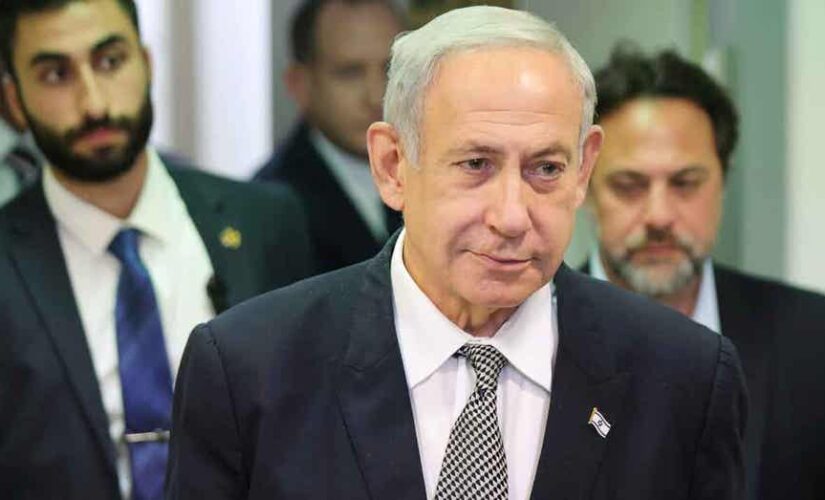Israeli Prime Minister Benjamin Netanyahu made a surprise trip to Jordan on Tuesday to meet with King Abdullah II for the first time in over four years, seeking to shore up ties that have strained since he took office at the helm of Israel’s most right-wing government in history.
The rare meeting between the leaders, who have long had a rocky relationship, comes as tensions grow over Israel’s new ultranationalist government, which took office late last year. The talks centered around the status of a contested holy site in the Old City of Jerusalem sacred to both Jews and Muslims, an emotional issue at the heart of the conflict between Israel and the Palestinians, Jordan’s official statement indicated.
Jordan’s royal court said the king urged Israel to respect the status quo at the sacred compound, which Muslims call the Noble Sanctuary and Jews call the Temple Mount. The compound — the third-holiest site in Islam — sits on a sprawling plateau also home to the iconic golden Dome of the Rock.
ISRAEL, JORDAN SIGN DECLARATION OF INTENT AT UN CLIMATE CONFERENCE TO CONSERVE, PROTECT JORDAN RIVER
Under an arrangement that has prevailed for decades under Jordan’s custodianship, Jews and non-Muslims are permitted visits during certain hours but may not pray there. But Jewish religious nationalists, including members of Israel’s new governing coalition, have increasingly visited the site and demanded equal prayer rights for Jews there, infuriating the Palestinians and Muslims around the world.
In Tuesday’s meeting, King Abdullah II also pushed Israel to “stop its acts of violence” that are undermining hopes for an eventual peaceful settlement to the decadeslong Israeli-Palestinian conflict, the Jordanian government added, reaffirming its support for a two-state solution. Israel’s new coalition has vowed to expand Jewish settlements in the occupied West Bank and even annex the territory, making a future independent Palestinian state unviable.
Israeli Prime Minister Benjamin Netanyahu attends a hearing at the Magistrate’s Court in Israel on Jan. 23, 2023. Netanyahu made a surprise trip to Jordan to meet with King Abdullah II on Jan 24, 2023.
(Abir Sultan/Pool Photo via AP)
Netanyahu’s office said he discussed “regional issues” and security and economic cooperation with Jordan, a key regional ally. Jordan’s 1994 treaty normalizing ties with Israel produced a chilly-at-best peace between the former enemies.
The Jordanian government has already summoned the Israeli ambassador to Amman twice in the last month since Israel’s new government took office — both times after an incident at the Al-Aqsa Mosque compound. Netanyahu has repeatedly offered assurances that there has been no change in the status quo at the site.
Earlier this month, Israel’s new hard-line minister of national security, Itamar Ben-Gvir, made a provocative visit to the site, drawing condemnations from Jordan and across the Arab world. Jordan also protested to Israel after Israeli police briefly blocked the Jordanian ambassador from entering the Al-Aqsa Mosque, decrying the move as an affront to Jordan’s role as custodian.
The compound is administered by Jordanian religious authorities as part of an unofficial agreement after Israel captured east Jerusalem, along with the West Bank and Gaza, in the 1967 Mideast war. Israel is in charge of security at the site. Because of Jordan’s special role and the site’s importance to Muslims around the world, whatever happens at the site has regional implications.
CLICK HERE TO GET THE FOX NEWS APP
The site emerged as a major flashpoint between Israel and the Muslim world in 2017, when Israel placed metal detectors, cameras and other security measures at entrances to the compound in response to a deadly Palestinian attack there. After days of some of the worst Israeli-Palestinian clashes in years, Jordan helped resolve the crisis.
Over the years, the neighbors have maintained a crucial security alliance, buttressing Jordan’s position as a partner of the West in one of the world’s most volatile regions.




